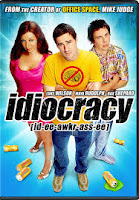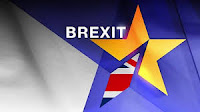Ironically, I was asked to give a European view of Brexit for an online conference this morning. I say, ironically, because it was in my role as an Irish lawyer for an Irish law firm, yet speaking from London as someone who's also qualified as an English solicitor and who left Sydney in 1994 as a 29 year old barrister. I guess that makes me one of Theresa May’s ‘citizens of nowhere’. At any rate, here's a summary of my view - which I tried to couch in terms of opportunities from a European standpoint.
How to view Brexit
I see Brexit as a set of international sanctions self-imposed by voters for emotional reasons - whether perceived 'lack of sovereignty', feeling 'left behind by globalisation', xenophobia or nostalgia. The hard facts never mattered. Trading rights to fish in UK waters to EU countries may have 'sent a shudder' through
the House of Commons from a symbolic, nationalistic standpoint but fishing is the UK's smallest industry, employing
24,000 people and exporting 80% of its catch to the EU to help feed 400m people, as opposed to the UK's 65m.
And the hard reality is that the UK helped build the EU trade bloc, including advocating its expansion to 28 members; and contributing significantly to many of its rules, like EU financial services regulation and, ironically, anti-money laundering regulation. So I have little sympathy with the idea that Britain could legitimately expect the EU suddenly to change how it does deals with third countries just because Britain used to be a member state.
Opportunities?
Brexit may be a mess of the UK's own making, but every mess provides an opportunity for someone to clean up.
Looking for opportunities in this context is a bit like the final scene in "The Life of Brian". A lot of terrible things happen in that scene, including mass-suicide out of 'solidarity' with the poor unfortunates being crucified. But it's important to remember that the scene ends with everyone singing “Always look on the bright side of life”.
To continue the idea that Brexit is a set of self-imposed sanctions, the opportunities really boil down to 'sanction-busting' – finding workarounds for the many problems Brexit creates. Aside from the potential for speculators and other 'disaster capitalists' to make money, there are three sources for these opportunities:
Any form of Brexit means ‘no deal’ for services:
The end of Brexit transition period in December means the end of free movement of services from the UK into the EU (and the free movement of the labour needed to deliver them), as well as the end of mutual recognition of professional qualifications, licences and various types of certificates (e.g. veterinary, eIDAS identity certificates and so on).
That's a significant problem because services account for 80% of the UK economy, 80% of UK jobs and a third of UK exports, 40% of which go to EEA countries.
This means UK firms need to set up EEA hubs, which will bring know-how, jobs and tax revenues to their new home countries. Ireland has a great opportunity here, being the only principally English speaking, common law country left in the EEA with a visa-free Common Travel Area for British and Irish workers. That's why I got my own practising certificate in Ireland and added a consultancy with an Irish law firm, since my UK practising certificate and legal qualifications won't be recognised in the EU after Brexit transition ends.
The perceived mishandling of Covid19 by the UK government compared to others (not to mention a trend toward xenophobic policy measures and right wing culture) might also feed into people’s sense of where is best to live, as could a trend toward remote-working as opposed to treating cities like London as essential hubs.
Britain is a consultant/client state:
Successive British governments have been relaxed about the sale of British businesses to foreign buyers, to the point where there aren’t really many major British-owned businesses anymore, and there seem likely be even fewer in future.
In fact, Britain has evolved not only into an 80% service economy but also a consultant state - a sort of UK Consulting PLC. It majors in financial services, international dispute resolution, artificial intelligence, computing, construction, engineering and lots of other services (not to mention tax avoidance and money laundering) without actually owning the factories, output, buildings or in many cases even the land on which they're built.
At the same time the British government apparently sees the job of serving its own citizens as something to be outsourced to private service providers. So the government operates like a procurement platform, paying service providers vast sums of tax money to deliver public services in remarkably autonomous fashion, while extracting taxes from the service providers' public sector income (as a kind of referral commission), as well as the taxes on the revenue from UK Consulting PLC.
Needless to say, there are all sorts of opportunities for EU/UK service providers to import and export services using local UK/EU entities and locally qualified personnel, subject to dual qualifications and nationality/visas for those who need to move between.
Friction at the borders
There will be problems and delays at the UK borders, regardless of any deal or no deal. So Ireland, for example, is busy figuring out how to get its goods in and out by increased ferry services to and from the EU, and is planning how to open up markets beyond the UK.
On both sides of the borders, customers who import from the EU into the UK or vice versa want to avoid 'customs risk'. That means the exporting suppliers must have a local entity/office in the EU/UK that takes on the responsibility and the liability for ensuring goods are delivered to importers.
In each case, both European and British businesses can assist each other in embracing these challenges as opportunities, even if the ultimate result is a transfer of British business activity to the EU and a British economy that is smaller and produces less than if Britain had remained a member of the trade bloc.
You see, I told you there'd be opportunities!






